Accounting Principles and Practices > Mastering E-Invoicing : a Comprehensive Guide for Malaysian Business
At the end of this course, participants shall be able to:
• Explain the fundamental concepts and significance of e-invoicing, including its impact on current business processes and the benefits it offers.
• Navigate the regulatory framework and compliance requirements for e-invoicing in Malaysia, including transaction types, affected parties, scenarios, and exemptions.
• Familiarize themselves with different e-invoicing models, such as MyInvois and API, and confidently navigate the e-invoicing process through both portals , including the creation, submission, validation, and sharing of e-invoices, while adhering to mandatory fields and file formats.
• Assess their readiness for e-invoicing implementation, including data security and privacy monitoring, and identify the required fields for e-invoices.
• Effectively manage transactions with buyers, including scenarios where buyers require or do not require e-invoices, and handle statements or bills on a periodic basis.
• Illustrate and relate real-life scenarios, demonstrating how E-Invoice requirements can be applied in different business circumstances.
Director, Manager, Executive, Officer
• Finance Department
• Accounting Department
• Taxation Department
• Compliance Officers
• IT Department
• E-Invoice Service Provider
• Software Developer and Organization
• Business Owners
• Procurement Department
• Supply Chain Department
• Auditors
• Legal Counsel
The training methodology for this comprehensive e-invoicing course is designed to ensure maximum engagement and effectiveness for participants. It incorporates a combination of theoretical knowledge, practical demonstrations, case studies, and hands-on exercises to cater to different learning styles and enhance retention.
Each module begins with a clear and concise overview of the topic, followed by in-depth discussions on key concepts, such as regulatory frameworks, compliance requirements, and implementation timelines. Practical demonstrations provide participants with step-by-step guidance on navigating e-invoicing workflows through both MyInvois and API portals, ensuring they gain practical experience in using these platforms.
Case scenarios and example scenarios are utilized throughout the course to illustrate real-world applications and facilitate understanding. Additionally, interactive sessions encourage active participation and allow participants to ask questions, share experiences, and discuss challenges they may encounter during e-invoicing implementation.
The course culminates in a practical exercise with LHDN E-Invoicing, providing participants with an opportunity to apply their knowledge and skills in a simulated environment under the guidance of trainer. Overall, the training methodology prioritizes practicality, interactivity, and real-world relevance to ensure participants are well-equipped to master e-invoicing in Malaysia.
Module 1: Overview of E-Invoicing
• Introduction of E-Invoicing
• Impacts in the current process due to mandatory of E-Invoicing
• Benefits of E-Invoicing
• E-Invoice Implementation Timeline
• Regulatory framework and compliance requirements for E-Invoicing
i) Transaction Types
ii) Who is affected by E-Invoice?
iii) Scenarios & Types of Invoices
iv) Exemptions from implementing E-Invoice
Module 2: Getting Ready for E-Invoicing
• E-Invoice Overview Workflow
• E-Invoice Model (MyInvois vs API)
• E-Invoice Process via MyInvois Portal (Step by Step Guidance)
i) Case scenario by using MyInvois Portal
• E-Invoice Process via API Portal (Step by Step Guidance)
i) Case scenario by using API Portal
• Data Security and Privacy Monitoring by IRBM
• Assessing Readiness of E-Invoice
• List of Required Fields for E-Invoice
• List of Mandatory and Optional Fields for E-Invoice
Module 3: Transactions with Buyers
• Where the Buyer requires an e-Invoice
• Where the Buyer does not require an e-Invoice
• Certain activities that require e-Invoice to be issued for each transaction
• Example scenarios to demonstrate each application
Module 4: Statements or Bills on a Periodic Basis
• Issuance of E-Invoice to Buyer (with steps and example)
• Issuance of Consolidated E-Invoice for Buyers who do not require
E-Invoice (with steps and example)
Module 5: Disbursement or Reimbursement
Module 6: Employment Pre-requisites and Benefits
Module 7: Expenses Incurred by Employee on behalf of the Employer
Module 8: Self Billed E-Invoice
Module 9: Transaction which Involve Payments (Whether in Monetary Form or otherwise) To Agents, Dealers or Distributors
Module 10: Cross Border Transactions
Module 11: Profit Distribution (eg: Dividend Distribution)
Module 12: Foreign Income
Module 13: E-Commerce Transactions
Module 14: E-Invoice Offences
Module 15: Practical Exercise with LHDN E-Invoicing
FREE QUOTATION!
COURSE INCLUDES
COURSE BENEFITS
ALL IN FROM ONLY
RM0/DAY
*T&C Applies
No review yet.
Business Transactions & Accounting for Full Set of Accounts (Online Training)
RRP RM1,920/day SAVE RM580
Fundamental of Accounting, Understanding and Preparation of The Full Set of Accounts
RRP RM2,860/day SAVE RM861
Live chat, call or email, we’re here for you

Quorse is Asia’s #1 online training marketplace that connects learners with trainers who seek a value-added training experience on a single platform. Discover training courses from diverse categories, ranging from technical IT certifications to personal development programs.
Sign Up to Bookmark your Favourite Course
or Request for a Quotation instantly
Sign in with your social account
or
By signing up, you agree to our Terms of Use and Privacy Policy